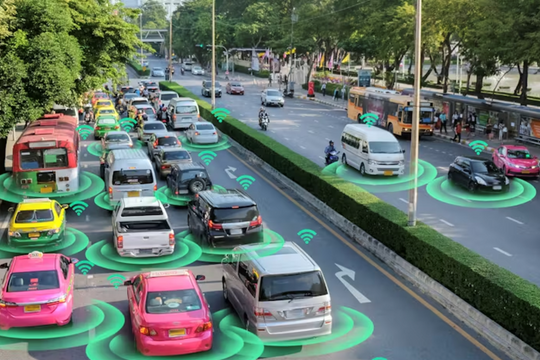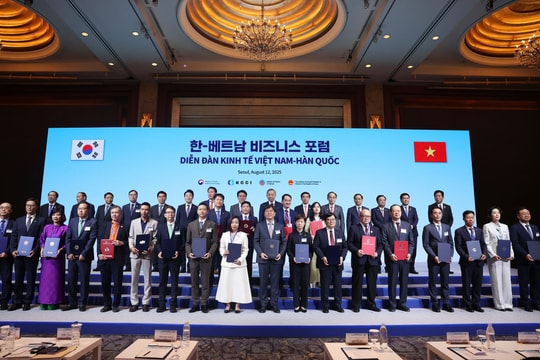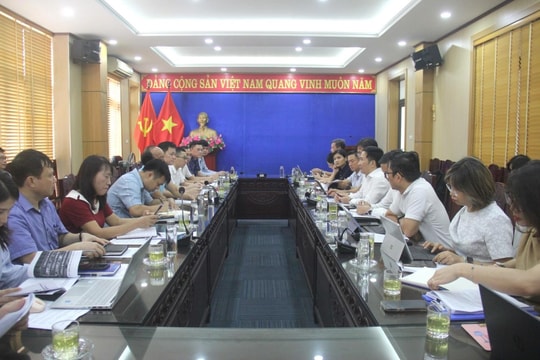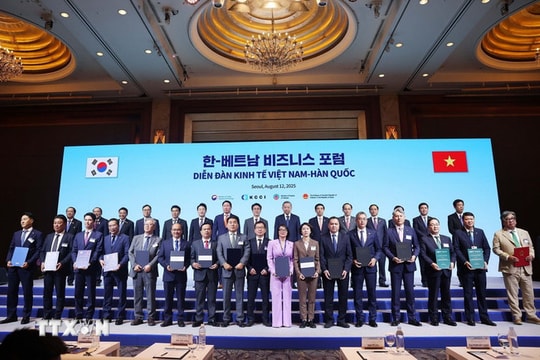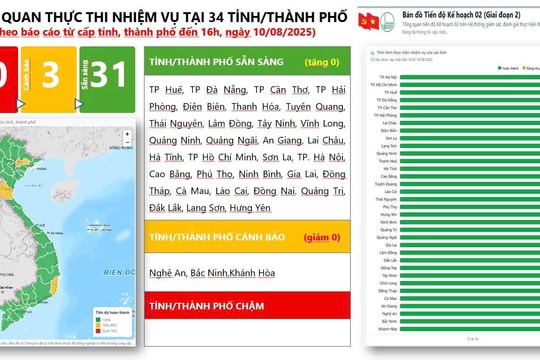TheNationalDigitalTransformationProgramset adualgoal:holisticallytransformthenationonthreepillarsincludingdigitalgovernment,digitaleconomy and digital society and accelerating Vietnamese ICT industry with "go global" mindset and capability, along with a set of basic indicators for measurement.
Indetail,thebasicgoalby2025istodevelopdigitalgovernmenttoimproveefficiencyandeffectivenessofoperations.Onthatbasis,80%oflevel4onlinepublicservicesshallbeprovidedthroughvariousmeans,includingmobiledevices.90%ofdocumentsatministerialandprovinciallevel,80%ofdocumentsatdistrictleveland60%ofdocumentsatcommunelevelshallbeprocessedonnetworkenvironment(exceptfordocumentsthatfall within the scope of government secrets). 100% of national databases, including databases on Population, Land, Business Registration, Finance, Insurance, that underpin digital government development, shall be fully established, inter-linked and shared for common uses between public organizations. Non-confidential data of public agencies shall be gradually put under national open data initiative to provide latest, one-time declaration, full lifecycle data to provide digital public services to citizens and foster socio-economic development. Another important target is to enhance Vietnam's EGDI ranking in top 70 leading countries worldwide.

Regarding economic development, improving economic competitiveness by fostering digital economy with target to be accountable for at least 20% of GDP by 2025; contribution of digital economy in each sector shall account for at least 10%; annual labor productivity aims to increase at least 7%; Vietnam to be in top 50 countries leading in information technology index (IDI), in top 50 countries leading in the global competition index (GCI) and in top 35 countries leading in global innovation index (GII)...
PERCEPTION PLAYS A KEY ROLE IN DIGITAL TRANSFORMATION
Also according to the newly approved the National Digital Transformation Program, the Prime Minister also clearly identified 6 principles and approaches of the Program, in which: Perception plays a key role in digital transformation; People should be placed at the center of digital transformation (citizen-centric); Institutions and technology are the driving forces of digital transformation; Digital platform development is a breakthrough solution to accelerate digital transformation process with lower costs and higher efficiency; Cybersecurity is the key to a successful and sustainable digital transformation, as well as an integrated component of digital transformation; whole government approach at all levels and the participation of the entire population are key success factors of digital transformation.
On that basis, the National Digital Transformation Program outlines specific groups of tasks and solutions to be implemented to create fundamental building blocks of digital transformation; to develop digital government; to develop digital economy and digital society.
In particular, to create building blocks for digital transformation, as the program highlighted, it is necessary to transform the perception on the mission, the necessity and urgency of digital transformation in the society; to create spreading effects from point to point, from pioneers organizations to community, through highly persuasive success stories.
In order to implement the above-mentioned tasks, four specific solutions are proposed: The leader of organizations take the highest obligation for digital transformation within the organizations, field or sector under their management; To establish and maintain effective activities of the Digital Transformation Coalition to inspire and pioneer throughout the whole transformation process; To develop common set of graphical recognition and identifier for the National Digital Transformation Program; Each local province proposes a commune/ward to participate in pilot programs which educate local people with basic digital skills. In terms of institutional creation, the Program has defined a concrete direction which encourages and supports piloting and adopting of unprecedented digital products, services and business models, promoting new approach in management to response to innovation, including: Accept piloting of new digital products, services, and business models; Establish regulatory sandbox; Review, amend existing legal documents and propose supplementary ones in specialized sectors; Review, amend existing legal documents and propose supplementary ones on enterprises, tech startups, intellectual property, commerce, investment and business.
Along with that, there is necessity to review and amend existing legal documents, and propose supplementary ones on information and communications sector; to study and propose
specific policies, regulations on tax, fees to promote high engagement of citizens and enterprises in using and provisioning digital services respectively; to review and amend civil and criminal-related legal documents and specific law to apply higher penalty imposition for frauds on cyberspace.
VIETNAM SHALL BECOME A DIGITAL NATION BY 2030
For digital infrastructure development, demanding group of tasks are: readily supporting and harnessing massive connectivity and big data generation; provide capabilities to monitor network service quality down to single network node; and enhance cybersecurity through adoption of "security by design" principle.
To implement these tasks, four specific solutions shall be put at high priority: Constructing and developing broadband infrastructure; upgrading fourth generation (4G) mobile network and deploying fifth generation (5G) mobile network, enforcement of 4G and 5G dual support for mobile devices and enhancement of smartphones penetration rate; expanding domestic Internet connection, enhancing adoption rate of .vn domain name; developing Internet of Things (IoT) network infrastructure and integrating smart sensors to transform traditional infrastructure as a critical component of digital infrastructure. In this group of tasks, the universalization of smart phones (one smartphone per citizen) and universalization of broadband infrastructure (one fiber optical cable per household) is of immense importance in accelerating digital transformation.
Besides, in order to create building blocks as concrete foundation for digital transformation, the National Digital Transformation Program have identified groups of tasks and solutions on digital platform development; to create trust and ensure cybersecurity; to promote international cooperation, R&D and innovation in the digital environment.
In addition, the Program has identified 08 sectors with high priority of digital transformation, including: Health, Education, Finance - Banking, Agriculture, Transportation, Energy, Natural Resources and Environment, and Industrial manufacturing.
COORDINATIONMECHANISMTOIMPLEMENTTHENATIONALDIGITALTRANSFORMATIONPROGRAM
RegardingthemechanismtocoordinateoverallimplementationoftheProgram,thePrimeMinister's Decision clearly states that the National Committee on e-Government has been tasked to draft strategies, mechanisms and policies to accelerate digital transformation towards digital government, digital economy and digital society; to supervise and coordinate the overall implementation of the National Digital Transformation Program.
TheSteeringCommitteeone-Governmentofministries,ministerial-levelagencies,GovernmentalagenciesandPeople'sCommitteesoflocalprovincesandcentralprovincesshallsuperviseandcoordinatedigitaltransformationinitiativeswithinrespectiveministries,sectorsorprovinces.
Duringtheimplementation,iftheprocessrequiresunordinarychangeatPrimeMinisterlevel,theMinistryofInformation andCommunicationsshalladvisethePrimeMinisterforfinaldecision.Iftheunexpectedchangerequirementsoccurattheministeriallevel,sectorallevelorprovinciallevel,standingofficeofSteeringCommitteeon e-Governmentofcorrespondingorganizationshalladvisethe authorized level for final decision.


